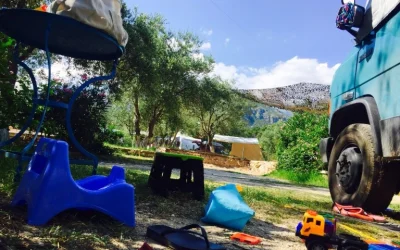As I was growing up, I never had to do any chores or anything to help in the home. No washing up, no laundry, no cleaning, no cooking. The most I did was take my plate to the kitchen when I’d finished my dinner. At my dad’s house he expected us to offer to wash up (that’s polite) but we rarely actually did it. My mum’s reasoning was that she wanted us to focus on our school homework, so she didn’t want us to be distracted with chores. My mum’s goal was for us to have a good education and for that to give us the best opportunities in life. Her approach certainly worked for these purposes: my sister and I both worked and studied hard and got excellent academic results. I guess what my mum’s approach enabled us to do was to specialise – it has enabled us both to access good careers but neither of us can cook and we are embarrassingly undomesticated. Furthermore, my partner says if I was left to fend for myself in the wild I wouldn’t last two minutes. He’s right.
In the context of 1980s feminism and rising possibilities for social mobility, my mum’s focus on her daughter’s education was an understandable goal. But what are our goals now, today, in 2018? Do we want our son to specialise on his one career? My partner certainly doesn’t want that. He wants our son to be self-sufficient; an ‘all-rounder’; multi-skilled; survivalist.

Is not the era of specialisation dead anyway? There are no more ‘jobs for life’. Most people, we are told, will have three or four different careers in their lifetime. We are told we need to be ‘Entrepreneurial’ – adaptable, flexible. As a parent, what’s the best way to achieve that for a child? Should we be raising our children to be flexible to the needs of capitalism; to be able to adapt and survive in an ever-changing technologically advancing job market? Or do we want to bring up our children to be able to survive, to know themselves, to feed their basic needs, when all this melts away?
In my research on the London middle classes, we found parents who talked about ‘global travel’ as a kind of ‘cultural capital’ for their kids, an experience that they can ‘cash in’ for a university place or a job. In my experience, the middle classes always talk in this way: searching for ways to capitalise on something. (This is not their fault but the system). I hate to think of our travels with our son in this instrumental way. And I know my partner doesn’t. But I am burdened with a sociological knowledge and understanding, which is just that: a burden, that prevents you from just being. How can you know ‘game theory’ and not apply it, right?
So I guess it’s what you do with that knowledge. We want to think beyond the instrumental. To provide our children with the (multi) skills to be of value in the community, rather than be of value to an employer; to share skills rather than compete for them. When we are deciding what to teach the next generation, what to guide them to study, we want to always hold in mind ‘what is of value to the community?’ (I.e. all of us) rather than ‘what gets them ahead in the rat race?’.




